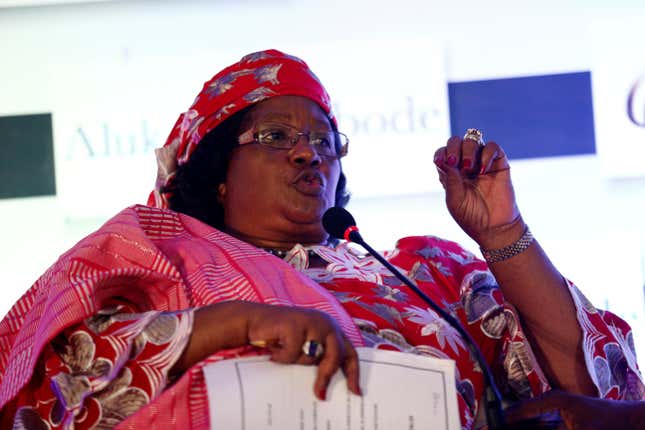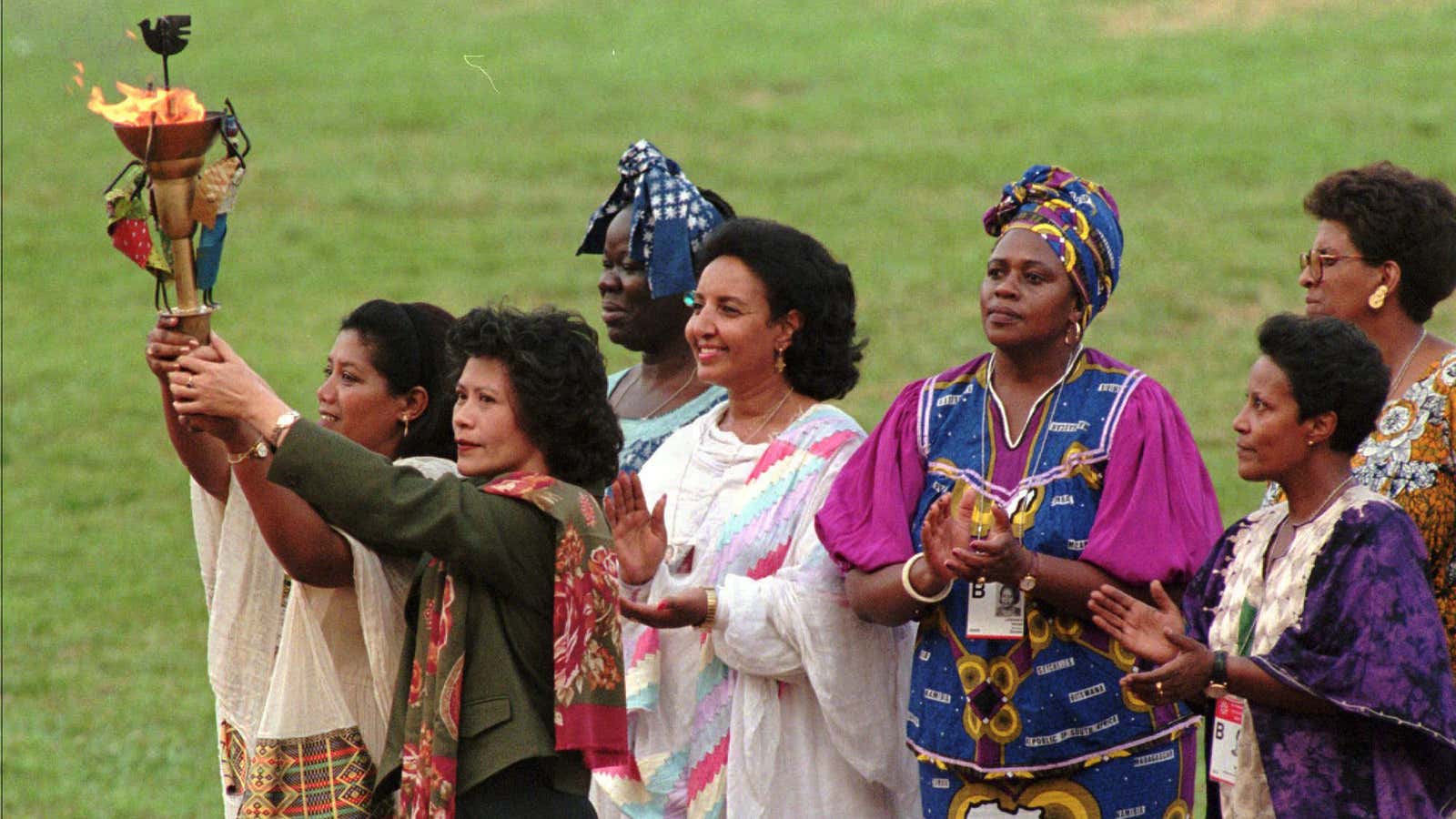With a woman running to be president of the US, and the (admittedly, thinning) possibility that the next secretary-general of the United Nations could be a woman, a feeling that women may be finally getting a more prominent role on the world’s stage may be justified.
But that may just be half the story, Joyce Banda—the former president of Malawi and a longtime advocate for female representation in politics—told Quartz in an interview. “As far as I am concerned,” she says, “women’s leadership is under attack.”
Banda, who was Africa’s second female president, has been at the forefront of the fight for equal rights for decades. She says the turning point for gender equality was the Beijing declaration of 1995 (pdf), which first put the empowerment of women on the international agenda. Attending the conference as an activist, she recalls that, at the time, Hillary Clinton’s speech “women’s rights are human rights” was received as groundbreaking, as it seemed unthinkable to put women’s rights at the center of international development, and yet it seems so obvious now—a sign of the fast progress that followed 1995.
“One thing was clear all those weeks that we were in Beijing, that we were going to go back home and participate in leadership,” Banda remembers. “In order for that to be possible, we are going to do several things: economically empower ourselves, send our girls to school.” And change began to happen—around the world, and in Africa, where cultures are predominantly patriarchal. In the span of twenty years, two women became president in Africa—herself, and Ellen Johnson Sirleaf in Liberia; several African countries rank amongst those with the larger female representation in parliament; Rwanda can pride itself of a parliament that is 64% female—a world record.

But, Banda continues, “patriarchal societies didn’t realize is that [change] was actually happening, and happening very fast, and it is as if they took a nap and woke up with us sitting at the table.” And so, they are pushing back.
The wave is turning, Banda fears, and points at a phenomenon that’s happening the world over: “the trend is, is that most of [the female heads of state] are being removed, unceremoniously, and some of them, as far as I am concerned, unfairly too.” She mentions Julia Gillard, who was ousted as prime minister of Australia in 2013.
Or Nobel peace prize winner Aung Sang Suu Kyi who, despite having been at the forefront of the movement for democracy in Myanmar, and winning the elections with her party, did not become president. “She cannot become president because there is a clause that they pushed into the constitution that says if you’ve been married to a foreigner you can’t become president,” Banda explains, commenting that, were she not a woman, in the face of “something unjust as that, [they would have gone] back to parliament and change it and make that person a president.”
Dilma Rousseff, too, would be another example. The former president of Brazil was removed from office on Aug. 31 following a controversial impeachment over allegedly manipulating the country’s accounts to hide a growing deficit. After Rousseff was ousted, the presidency was given to her former vice president, Michel Temer, who, as well as many who led the impeachment, have been under investigation for corruption and other criminal charges. “Why is it that a president is removed, but the same country tells you that she was not found guilty of corruption?” asks Banda.
And, she says, it’s getting worse, not better. Women in public office around the world are subject of misogyny, she says, which finds expression in attempts to remove them from power as well as routine subject to name calling. “In a civilized nation like Australia the prime minister [Gillard] who is a lawyer by profession, [was] called a “witch,” a “bitch”—[…] by fellow leaders, not by ordinary citizens.” ”In the past five, six years we’ve seen this across the world,” she says, “it started from Australia and just keep going all the way to the United States of America,” where the personal attacks on Clinton have been commonplace.
She has an idea as to why this is happening: “it’s the problem we’ve always had, it’s the patriarchy.” But, she also knows how it’s fought—as it always has been, by standing by the women. “We must support [the women] who are getting into politics and are in leadership to stay in these positions,” she says, “and ensure that we are naming and shaming those who are abusing them.”
